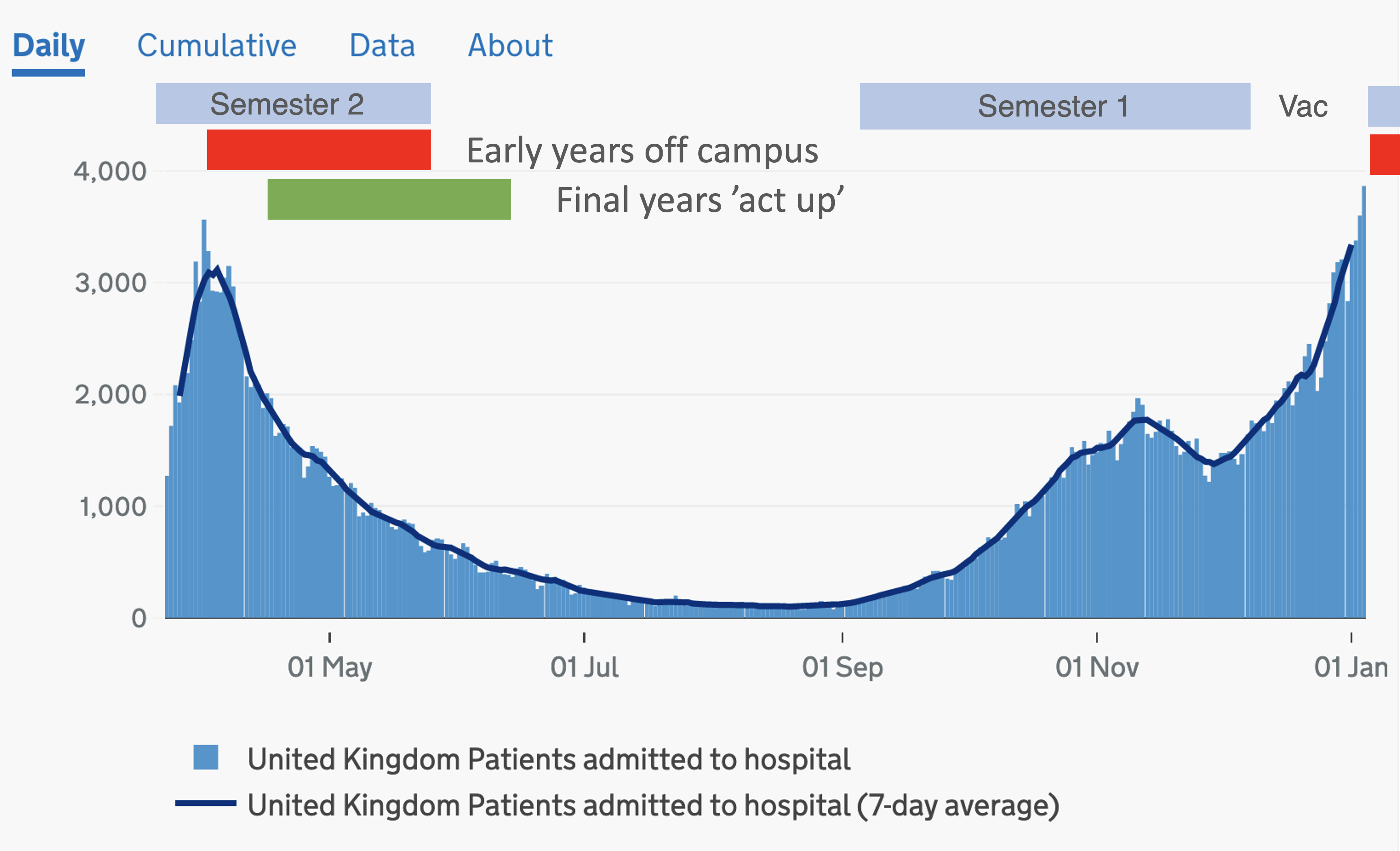Pandemic-ready medical education

Pandemic-ready medical education
- What we’ve learned
- What’s still to do
From a talk delivered at the international online conference Medical Education Technology – Curriculum opportunities from Corona on 9 Jan 2021, organised by Prof Chalam at Bhaskar Medical College, Hyderabad, India.
More from content to follow: but first, Links to further info as promised:
- Music and glomerulonephritis – possibly the most challenging lecture in Renal after striking out Renal Tubular Acidosis. An example of a lesson stitching together short presentations. Text alternatives for video segments are provided or on the way.
- OREA: Edinburgh’s recommendations on Online and Remote Examination and Assessment: OREA summary and report here.
- Two hours on assessment:
- Phill Dawson on contract cheating online, and on defending assessment against e-cheating. Some notes on proctoring
- Danielle Logan on Authentic Oral Assessment (includes student presentations, vivas) – the hardest assessments to cheat. But not reliable unless you do a lot of it. Think about how to use it best.
- Team based learning. Link to TBL to follow. Principle is that they read/prepare in advance, then in the live session they solve problems. You can do TBL in a large room with 150+ students in groups ; though over 80-100 you’ll probably want to have one or more junior assistants to wander round the groups and help. In this, all do all the same questions at the same time. After a few questions, I go back over a cluster of Qs, maybe present some new info too, to vary content and pace. Bit of history, more detail on a topic. Scratch-cards for Team Based Learning from Epstein Education. Prize for the winning group (candy when I do it).
- Team based learning online. Epstein don’t offer an online equivalent of their scratchcards. Others are beginning to create apps to do the same, am testing one now. Simplest thing for the present is:
- Create a page of cases/problems and give this to students on the day (in the session only). Each case has two or three short Qs at the end (what is the most likely diagnosis – what 2 tests would be most informative).
- Split students into rooms with 3-6 in each (possible in Zoom, Teams, Collaborate …). Tell them to choose someone who will present the group’s thoughts (with video on!). If your numbers are large you may have more than one group per problem. Do this rather than enlarging groups.
- Best cases are at least a bit grey; don’t have a single definite diagnosis/answer, only a ‘most likely’ diagnosis or best method of solving, so that they, then others, and finally you can talk through the steps leading to conclusion/plan.
- Allow ~15 mins depending on problem but it always takes longer than you think. You can visit the groups in turn, focusing on those with the hardest Qs
- Groups report back one by one, then you ask whether others have Qs, or agree, then you question and lead through your own thoughts, opening to Qs from others frequently (chat or voice).
- I don’t record these sessions, as the value in them is participation in group interaction and thinking.
Pandemic-ready medical education / neilturn by Neil Turner is licensed under a Creative Commons Attribution CC BY 3.0




Thank you sir for the music on glomerulonephritis